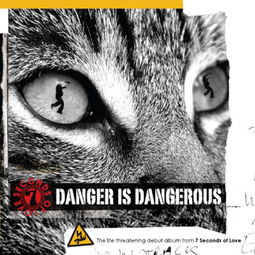
Is Cat Bite Dangerous?
When a cat bites you, it’s natural to feel a mix of fear and confusion. After all, cats are generally seen as gentle creatures, but they can sometimes bite. The question that often arises is whether a cat bite is dangerous. Let’s delve into this topic and explore the various aspects of cat bites to help you understand the risks and what to do if you’re ever bitten by a cat.
Understanding Cat Bites

Cat bites can occur for a variety of reasons. Cats may bite out of fear, aggression, or even play. It’s important to recognize the type of bite you’ve received to better understand the potential risks.
1. Playful Bites: These are usually gentle and occur during play. While they can still cause pain and injury, they are generally less severe than defensive or aggressive bites.
2. Defensive Bites: Cats may bite when they feel threatened or scared. These bites are often more forceful and can cause deeper wounds.
3. Aggressive Bites: These bites are usually the result of a cat feeling angry or territorial. They can be the most dangerous, as they often cause significant injury.
Risks of Cat Bites

While most cat bites are not life-threatening, they can still pose certain risks. Here are some of the potential complications:
| Risk | Description |
|---|---|
| Bacterial Infection | Cat bites can introduce bacteria into the wound, leading to infection. Symptoms may include redness, swelling, and pain. |
| Deep Wounds | Aggressive or defensive bites can cause deep wounds that may require medical attention. |
| Rabies | While rare, cats can carry rabies, a potentially fatal virus. If you’re bitten by a cat that is acting strangely or has a history of aggression, seek medical attention immediately. |
What to Do If You’re Bitten by a Cat

Here are some steps to follow if you’re bitten by a cat:
-
Wash the wound thoroughly with soap and water to reduce the risk of infection.
-
Apply an antibiotic ointment to the wound to help prevent infection.
-
Bandage the wound to protect it from further injury.
-
Observe the wound for signs of infection, such as redness, swelling, or discharge.
-
If the wound is deep or shows signs of infection, seek medical attention.
-
Report the bite to your doctor, especially if the cat is a stray or if you’re unsure of its vaccination status.
Preventing Cat Bites
Preventing cat bites is always better than dealing with the aftermath. Here are some tips to help you avoid being bitten by a cat:
-
Respect a cat’s personal space. Avoid approaching a cat that seems threatened or scared.
-
Do not provoke a cat, especially if it’s already showing signs of aggression.
-
Supervise children around cats to prevent accidental bites.
-
Keep your cat’s vaccinations up to date to reduce the risk of rabies and other diseases.
In conclusion, while cat bites can be dangerous, they are not always life-threatening. By understanding the risks and taking appropriate precautions, you can minimize the chances of being bitten and ensure that any bites you do receive are treated promptly and effectively.




